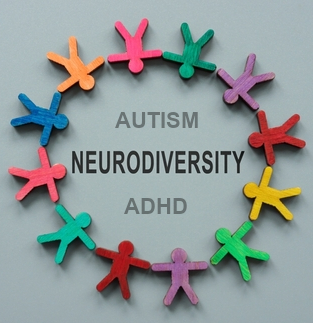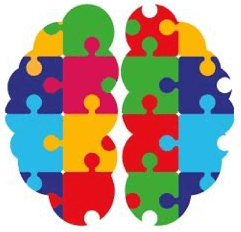Autism and ADHD Assessment Service and Support
Parents/carers often approach our service when they are questioning whether their young person may be autistic or have ADHD. At Making sense of it, when there is a question around either ADHD, autism or both, the first step is a screening assessment. We call this initial appointment a Neurodevelopmental Screening assessment.
A Neurodevelopmental Screening Assessment helps us to ensure that we only progress to a full diagnostic assessment if there is enough evidence to indicate that this is required. We will take this decision together with you and your young person (for older young people). If the outcome is to proceed for further assessment, this does not guarantee a diagnosis will be given. However, in this situation we will share our understanding of your young person and our thinking around any recommendations / interventions that may be helpful.
The process of discovering whether your child is autistic or has ADHD can feel overwhelming. We will help you to navigate this journey together. Below is an outline of what is included in the initial screening assessment and the full autism, ADHD or combined assessment pathways.

Neurodevelopmental Screening Assessment: £330
This takes place before a full diagnostic assessment and is an opportunity to meet with you and your child to explore your concerns, gather background information (also gained via questionnaires sent prior to the appointment) and answer any questions you may have. These appointments typically last 90 minutes. We will then decide together which type of further assessment might be best. Below is some further information about what these further assessments might involve and an idea of the costs.
Full Multi-disciplinary Autism diagnostic assessment - £2,350
At Making Sense Of It, we have joined with Speech and Language Therapists to develop a multidisciplinary autism assessment and diagnosis service. Our assessments follow the NICE guidelines (opens in a new tab). This assessment involves further appointments with a Clinical Psychologist and Speech and Language Therapist spread over several face-to-face appointments. During these appointments a number of standardised assessments take place including:
- Autism Diagnostic Interview (ADI-R) – a standardised interview completed with parents, by Clinical Psychologist, looking in detail at various aspects of development (3-4 hours – this can occur remotely if this is preferred)
- Autism Diagnostic Observation Schedule (ADOS-II) - a standardised assessment completed face-to-face with child/young person
Alongside this, the following are included:
- Speech and Language assessment and where possible observation in education setting
- Completion of additional questionnaires – parent, young person and education
- Multi-disciplinary discussion of assessment findings
- Feedback appointment with Lead Practitioner
- Detailed written report outlining each part of the assessment, our understanding of the young person, the diagnostic outcome and recommendations
- A follow up appointment 3-4 weeks after the report has been shared – this is a chance to reflect on the process of assessment, ask any questions and think about further support
Full ADHD diagnostic assessment - £1,070
At Making Sense Of It we offer a Clinical Psychology led ADHD assessment service. Clinical Psychologists are not able to advise on or prescribe medication, this is within the role of a Psychiatrist. The assessment involves the following:
- ADHD specific clinical interview with parent/carer and young person
- A computer based assessment will be administered called a Qb check (further information provided at the time)
- Completion of ADHD specific questionnaires – parent, young person and education
- A feedback appointment
- Detailed written report outlining each part of the assessment, our understanding of the young person, the diagnostic outcome and recommendations
- A follow up appointment 3-4 weeks after the report has been shared – this is a chance to reflect on the process of assessment, ask any questions and think about further support
Combined Autism and ADHD diagnostic assessment - £2,930
Where assessment for both ADHD and autism is indicated during the screening assessment, a combined assessment can be offered and includes the following:
- Autism Diagnostic Interview (ADI-R) – a standardised interview completed with parents, by Clinical Psychologist, looking in detail at various aspects of development (3-4 hours)
- Autism Diagnostic Observation Schedule (ADOS-II) - a standardised assessment completed with child/young person
- ADHD specific clinical interview parent/carer and young person
- A computer based assessment will be administered called a Qb check (further information provided at the time)
- Speech and Language assessment and where possible observation in education
- Completion of ADHD & autism specific questionnaires – parent, young person and education
- Multi-disciplinary discussion of assessment findings
- Feedback appointment with Lead Practitioner
- Detailed written report outlining each part of the assessment, our understanding of the young person, the diagnostic outcome and recommendations
- A follow up appointment 3-4 weeks after the report has been shared – this is a chance to reflect on the process of assessment, ask any questions and think about further support
Post diagnostic support
Discovering that you are autistic or have ADHD can be an emotional process for both the young person and those who love them. Having an explanation for the difficulties that your young person has been experiencing can bring a sense of relief. It can also leave you with lots of questions. There is a wealth of information available to help you learn more about autism / ADHD and what this might mean for you and your young person. We will share some ideas and futher resources with you in the feedback appointment.
Some young people and adults find it helpful to meet with a professional who has experience working with autistic people or people who have received a diagnosis of ADHD to help them make sense of their diagnosis and explore how to embrace this and overcome any challenges they face. At Making Sense Of It we believe that being neurodivergent brings many strengths and we aim to help a young person and their family to discover all of these aspects of themselves.
At Making Sense Of It we offer post-diagnostic support services and would be happy to discuss this further with you. You can get in touch via our contact form
Ongoing therapeutic support
Many children/young people and their families, benefit from having a diagnosis (e.g. of autism or ADHD) and an understanding of their profile of strengths and needs. We know that young people who identify as neurodivergent often experience challenges including high anxiety and low mood.
Research has shown that traditional therapeutic approaches often need to be tailored for young people who are autistic or have ADHD. Supporting young people who are neurodivergent is an area of specialism for Making Sense of It.
Whether you have had an assessment with us or your diagnosis/discovery was received elsewhere, we would welcome you to get in touch if you would like further support. Some people prefer not to get a formal diagnosis, but may self-identify as neurodivergent. We fully respect this and a diagnosis is not necessary to access support with us.

Further information about autism, ADHD and the language we use
ADHD and autism are types of neurodivergence or neurodevelopmental difference. There are many different ways to talk about neurodiversity or neurodivergence. These terms are generally considered to be umbrella terms which encompass a range of skills, abilities and also struggles.
The term neurodiversity is used to emphasise that natural differences exist in how our brains are wired which affects how people think, act and experience the world. Some people who have a diagnosis of ADHD or are autistic describe themselves as neurodivergent. Neurotypical is therefore used to describe those who are not neurodivergent.
The term autism covers a huge range of presentations, skills and difficulties. The preferred language around neurodiversity differs within communities and professional services. Some people prefer to use person-first language (person with autism) others prefer to use identity first language (autistic person). We are keen to ensure we use the language that feels most comfortable for each family we work with. Children and young people who might receive a diagnosis of autism typically will have difficulties in three areas: social interaction, communication and restrictive/repetitive behaviours.
ADHD is a neurodevelopmental difference. All of us can have struggles sitting still, paying attention, managing impulses or focusing. Children and young people who might receive a diagnosis of ADHD may have persistent difficulties in these areas that make daily life tricky. There are three main ways that ADHD presents in young people, which focuses on whether their struggles are within the area of inattention, over-activity/impulsivity or both.
NICE guidelines for the recognition and management of ADHD(opens in a new tab)
Giving an autism or ADHD diagnosis to a child/young person involves detailed and comprehensive assessment of all areas of their life. Unfortunately the assessment for a diagnosis of autism or ADHD is based upon a deficit or ‘difference’ focussed model. This means that the assessment must overtly focus on areas that are challenging for a young person or with which they really struggle and compare these to diagnostic thresholds and criterion. Throughout any assessments with us, we will enquire of and play close attention to areas of strength and abilities alongside gathering the information needed for diagnostic purposes. All this information will form part of the conversation during the feedback appointment / follow-up appointment and the written reports.
If you would like to make an enquiry, please get in touch via the contact form. We will then contact you for a brief telephone consultation which is free of charge. This will allow us to find out a bit more about the areas of concern and discuss how we can help.
Autism, is part of my child, it's not everything he is. My child is so much more than a diagnosisS.L. Coelho, 2011
